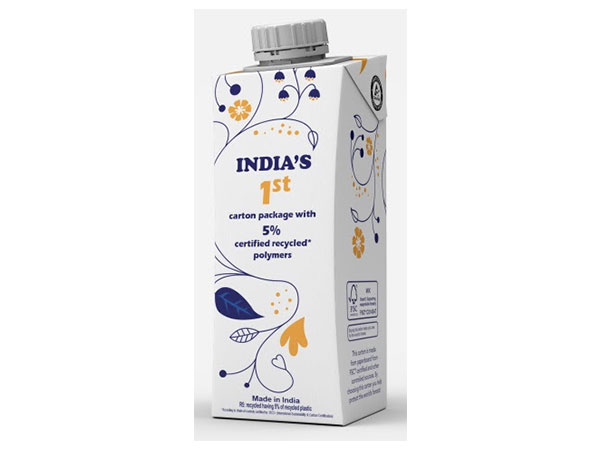
How to Maximize the Benefits of a Term Insurance Policy Over Time?
Feb 20, 2025
India PR Distribution
New Delhi [India], February 20: Term insurance plans are a commonly chosen option for both financial security and tax benefits. Yet, it's not that simple. Choosing the term insurance plan should not be followed by relaxing while paying premiums. Rather, being active and modifying the financial strategies as needed is essential to leverage the maximum benefit from the plan. Read on as we cover different points concerning this suggestion.
Methods to Obtain Maximum Benefits From Term Insurance Policy
The following tips must be kept in mind to receive maximum benefits from the term insurance policy over time:
Understand the Needs
It involves determining the right term insurance policy suitable for you. It is decided based on multiple factors such as present income, expenditures, expected increase in income in future and other crucial financial aspects. Current debts, loans and essential future expenses such as education and marriage costs or property buying costs must be considered when choosing a sustainable term insurance plan.
It will allow easy management of the insurance premiums. For instance, if you are looking for the best term plan for 1 crore, calculating premiums using a term plan premium calculator will offer insights into affordability and sustainability based on the mentioned types of expenditures.
Choose Suitable Tenure
The overall tenure plays a key role in determining the benefit a policyholder will receive. This tenure should be in alignment with your necessary financial expenditures and employment status.
Look For a Convertible Term Plan
Once you've chosen the right tenure, consider other options, like converting your term plan. Among the different options, choose the one that offers the flexibility to convert the term plan into a whole life or an endowment plan. It improves cash flow and finance management as per the monetary updates in life. Based on the finances, one can also proceed to choose the best term plan for 1 crore or go for conversion upto this value. Using a term plan premium calculator will be a wise decision to take for informed decision-making.
Choose to Obtain Riders
Riders refer to the optional add-ons in a term insurance policy. These are of different types and insured individuals include riders in their plans to gain extra coverage. Riders allow policy customisation as per their individual needs. Some of the examples of riders include:
-Critical illness rider that offers a lump sum if the policyholder is diagnosed with a critical illness
- Accidental death benefit rider offers additional payment on accidental death of the policyholder
- Long Term Care (LTC) rider allows monthly payments to policyholders if they need home care or are required to stay at a nursing home
- Waiver of premium rider that waives the premium for a specific period of time or in case of disability or inability to work
Obtain Tax Benefit
The policyholders can use term insurance plans to claim tax deductions. It is possible via section 80C of the Income Tax Act, which makes individuals eligible for tax deductions up to INR 1.5 lakhs per annum.
It is applicable if the policyholders are paying premiums. Additionally, the payout upon the policyholder's death is tax-free. The stated benefit is available under Section 10(10D). Policyholders are recommended to make use of tools like term plan premium calculators to assess the financial impact of the benefits.
Understand Claim Process
Besides the self-understanding of the tax claim process, awareness among the beneficiaries is necessary, too. They must be aware of the tax-free nature of the received amount and the claim process. Also, they must be well aware of all the documents and the right individual to contact. Additionally, for the policyholder, the awareness of the maturity amount claiming process and timely claim of tax deductions is essential.
Extend the Policy
The end of the policy will subsequently end the premiums, taking away the opportunity to claim tax deductions. If the insured is employed, an extension of the term insurance plan can help you maximise the benefits. It is possible to choose the renewable term plan, which will increase policy duration by another term until the policyholder attains a specific age.
Consider Inflation
During the time of choosing the term insurance plan, be mindful of inflation. With the passing years, inflation is certain to impact the market. Assess future financial needs considering inflation and make appropriate calculations to identify if the maturity amount will be able to meet the requirements at that time.
The ability to do so will offer maximum value out of the regular premiums now. For instance, if you choose the best term plan for 1 crore in current times, it might be insufficient to cover the future financial needs of the beneficiaries.
Plan Policy Management
The financial changes with time can result in delays or payment lapses. This scenario can lead to paying higher premiums or resulting in the loss of policy. Avoiding such situations is very important. To ensure the practical possibility of the same, there is a need to plan beforehand, especially for low financial situations.
Remain Updated With Market Changes
The financial market is dynamic. Remaining updated with the changes helps you adjust the plans. Remember to leverage online tools, including term plan premium calculator, to make decisions. Further, combining the other investment options with flexible term insurance plans will help optimise the finances and enhance its management.
Conclusion
Term insurance plans offer effective financial security while contributing to tax savings as well. Policyholders can maximise the benefits by following the listed points. Also, when choosing the best term plan for 1 crore or any other plan, ensure to plan the finances by using the term plan premium calculator. Apart from these, we emphasise remaining updated with the changes in the tax regime. Additionally, communication with finance experts is necessary to make logical and informed decisions concerning investments and modifications in term insurance plans.
FAQs on Term Insurance Plans
Q1. What is the three-year rule for term insurance?
The three-year rule for term insurance is listed in the Insurance Act of 1938. It prohibits denial of insurance claims by the insurer on any ground after three years from the date of the policy's commencement. It includes fraud and misrepresentation.
Q2. What happens if the nominee dies during term insurance?
If the nominee dies while the policyholder is alive, the nomination becomes ineffective. However, in case of the nominee's death before receiving the death benefit, the amount is paid to legal heirs.
Q3. What happens if a person outlives their term insurance policy?
The fate of premiums depends on the policy. Generally, the living policyholder does not receive any benefit, as the policy provides finances only on the death of the insured. But, there also exists a term insurance plan that offers the return of premium.
(ADVERTORIAL DISCLAIMER: The above press release has been provided by India PR Distribution. ANI will not be responsible in any way for the content of the same)






